Most people have no idea how to start the custom home building process, it seems exciting yet can be overwhelming. The custom home building process can be the most fulfilling project of your life, but where do you start? How much will it really cost?
It is easy to be afraid that you will spend too much money and time and still not be where you want in the process nor end up with the home you dreamed of. It is a confusing process watching construction that seems to take forever and certainly, you’d prefer not to spend any time arguing with a builder. The builder you work with should set your mind at ease and produce a final product that you will be thrilled to live in. They should do their best to calm your fears. It is disappointing that most give up on that dream of a custom home, a lot of people don’t even get as far as talking to a residential architect. They need a guide because they’re afraid to even have a conversation about their dream custom home building because they don’t know who to talk to or even what to ask. People know where they want to end up but not sure where to start.
Cost Estimates for Building a House
Single-family, or detached, home costs will vary based on the construction of the building, as well as added extras like location, lot size, and materials. It’s also important to note that detached homes are standalone structures. Due to their unique construction, the costs associated with standalone homes cannot be applied to duplex or townhome construction. Here’s a look at the costs associated with each kind of single-family home build, including custom, prefab, and development.
Custom Homes: $350,000 – $1.5 Million+
Custom construction allows you to create a home that meets your exact aesthetic and functionality needs. The unlimited options associated with custom homes make them costly both in terms of money and time. Additionally, custom builds will require the services of a residential architect. Hiring design professionals can range from five to 15 percent of your construction costs. If you’re hesitant to hire an architect, ask your builder to submit a design. Their costs typically range from $1.50 per square foot to more than $2.50 per square foot.
Estimating the cost of a custom home is difficult because of the wide range of options. Generally, custom homes cost between $100 and $400 per square foot. Location and materials will play a major role in the price of your custom home. Tiny homes are a popular alternative to larger custom homes. These downsized dwellings offer the personalization of custom homes without the price tag.
Modular and Prefabricated Homes: $50,000 – $300,000.
Prefabricated homes are manufactured offsite and assembled on location. While prefab homes may not have the design options of custom homes, they come at a substantially lower cost. Many pre-built homes cost 10 to 20 percent less than custom-built alternatives. Prefabricated homes also break down into two types:
Panel construction involves fastening premade walls to the floor of the home. This style of building is ideal for home designs with features that are unavailable in modular construction. Additionally, in many cases, panels are cheaper to transport than modules. Some builders install fixtures like sinks and toilets before installing the walls. This can speed up construction time and lower costs.
Modular homes are created in sections and assembled onsite. Modular manufacturing can result in smaller rooms, but many modern modular homes offer additional design options that can open up cramped areas. In most cases, porches and garages are not available on modular homes. Combining modular and panel construction is a popular alternative for those seeking designs not available in modular construction.
Developers and Home Builders: $50,000 – 1.5 Million+
Housing developments offer a high degree of customization but are limited to a library of floor plans and locations. Production homes are usually part of a master-planned community. While this can offer attractive amenities, it can also mean constant construction around the neighborhood. Additionally, many new-build neighborhoods are farther away from entertainment and cultural centers. Developments are priced for a variety of homeowners, ranging from first-time buyers to retirees seeking luxury homes.
The amount of customization available in a development is considerable. Housing developments are also more affordable than custom homes. In fact, opting for a development can save up to 15 percent on home building costs. In some cases, this can be on par with modular homes, but few developments will drop below that amount. Another option in this category is to work with a company that has a development in progress. This can increase savings, although the number of changes made must be minimal to take full advantage of the price.
Material and Machine Costs
Machine costs will also vary based on what your hired professional owns and what will have to be rented. The size and location of your home will affect machine costs. Building in rocky or unleveled environments will require specialized machinery, which will increase your costs. Most builders use backhoes equipped with the necessary attachments. The average cost of a backhoe is between $70 and $90 per hour.
Your home’s materials are an important part of determining the cost of your construction. The cost of materials will vary widely based on their type and the size of your home. The region of your home can also affect the cost of materials. Your pro should be able to give you an estimate based on your designs. Here’s a quick breakdown of general building material costs:
Labor Costs
Labor costs vary according to your pro and the size and complexity of your home. Large, custom-built homes will have a higher labor cost than smaller modular homes. It’s important to factor the cost of hiring architects, engineers and surveyors into your budget as well. The cost to hire architects and engineers will also vary based on location.
-
Architects – $60 – $125/ hour
-
Engineers – $100 – $150/ hour
-
Land Surveyors – $300 to $700
Here’s an estimation of the labor costs associated with each part of your home’s construction:
Foundation: $4,000 – $12,000
Excavating, pouring, and backfilling make up your foundation costs. Some homes also require retaining walls and additional landscaping to eliminate flooding or other foundation-damaging problems. Additional work can increase this cost.
Framing: $1,500 – $6,500
Your home’s frame will dictate the size and location of rooms and other important features like roofing. Framing costs include the overall home’s frame, as well as trusses and general metal work.
Exterior finishes: $40,000 – $60,000
Exterior finishing includes exterior walls, roofing and adding windows and doors. The number and type of exterior finish, windows and doors will affect this price.
Major systems installation: $30,000 – $50,000
Plumbing, electrical and HVAC comprise most of your major system costs. The size and type of systems can affect the price of these installations. For example, installing an energy efficient system starts with something like a solar panel cost and grows based on its size, wiring, and labor that connect it to all the fixtures, outlets and appliances in the house.
Interior finishing: upwards of $85,000
Interior finishing adds the comforts of home to your new build. This can include insulation, drywall, interior trim, painting, lighting, appliances, flooring and plumbing fixtures.
Final details
The final steps of your home construction will prepare it for moving. These last-minute updates include landscaping, decks, patios, driveways and clean up.
Additional Factors that Affect Costs
Numerous factors influence the final cost of the home. Here’s a look at additional factors that will increase your cost:
-
Land and Excavation – Prepping the land for construction is an important first step, and can vary in price. In most developments, the land is already prepared for building. If you purchased your own lot, you may have to hire a pro to clear it and excavate.
-
Size – A home with greater square footage will cost more than a smaller home.
-
The Number of Stories Additional stories will require additional construction and design work, which will increase your building costs.
-
Shape The more corners a home has the more it will cost. Unusual shapes are more common in custom designs.
-
Type of Roof The installation and upkeep costs of specialty roofs will cost more than asphalt options. This is an area where durability should trump other concerns.
-
Fixtures/Finishes The grade of fixtures can impact the cost of a home. Granite countertops and marble floor tiles are high-end options that come at a premium price. Most pros can recommend materials and fixtures that will meet your aesthetic and budgetary needs.
-
Appliances Refrigerators can range from fifty dollars to several thousand. The same goes for most major appliances in the home. Be sure to factor this cost into your budget before you begin construction.
-
Design Features Pools, outdoor kitchens and large decks are common design features. While these can increase the value and enjoyment of your home, they can also impact its construction costs. Design extras can increase your home’s upkeep costs as well.
Major Steps in Building a House
Create a Budget
Your budget will limit the size, building type, interior features and customization of the home.
Purchase Property
The location of your home will play a part in determining its costs, as well as additional details like school districts and entertainment options.
Choose a Construction Method
Decide on custom, prefab or a development. Always get multiple estimates, regardless of which construction method you choose. For modular homes, this can often be done online.
Develop Plans or Designs
Many homeowners don’t factor plans into their budgeting. For those building a larger or high-end home, the planning stage can be especially expensive.
Obtain Permits and Inspections
It’s best to let your general contractor or builders pull your paperwork. Permits are a complicated and time-consuming part of building a home. Having the right licensing will ensure your inspections are error-free. You’ll want to answer this question while you budget for a new build: How much is it to get a permit?
Purchase Construction Insurance
It’s a good idea to purchase construction insurance before groundbreaking begins.
Begin Construction
Construction includes a number of steps that range from site preparation and foundation work to installation of carpentry framing. The construction stage will likely include several professionals.
Book a Final Inspection
This step is a last examination of the home to ensure it matches the plans and local building codes. The inspection is necessary to receive permission to occupy the home.
Complete Landscaping
Landscaping is the last step to home construction. This can include laying sod, planting trees and shrubs and even adding decorative walkways. It’s important to plan your landscaping according to your climate.
These steps may vary based on individual decisions, location, and circumstances.
Always start with a plan! Think about what you want, gather pictures of what you want your home to look like. Dream big and allow your agent and builder to guide you through the process! Happy Building!!

